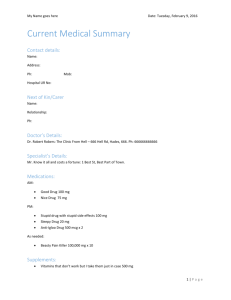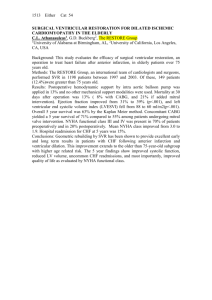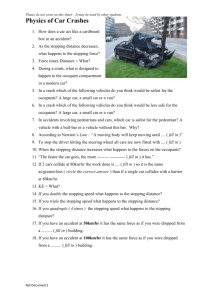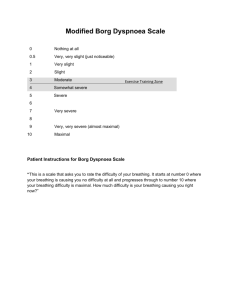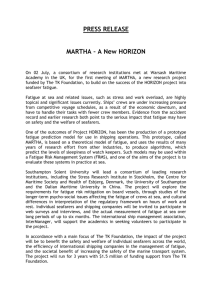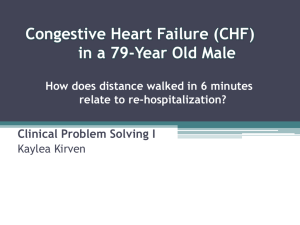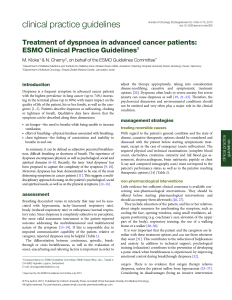additional prognostic information from symptoms in chronic heart
advertisement
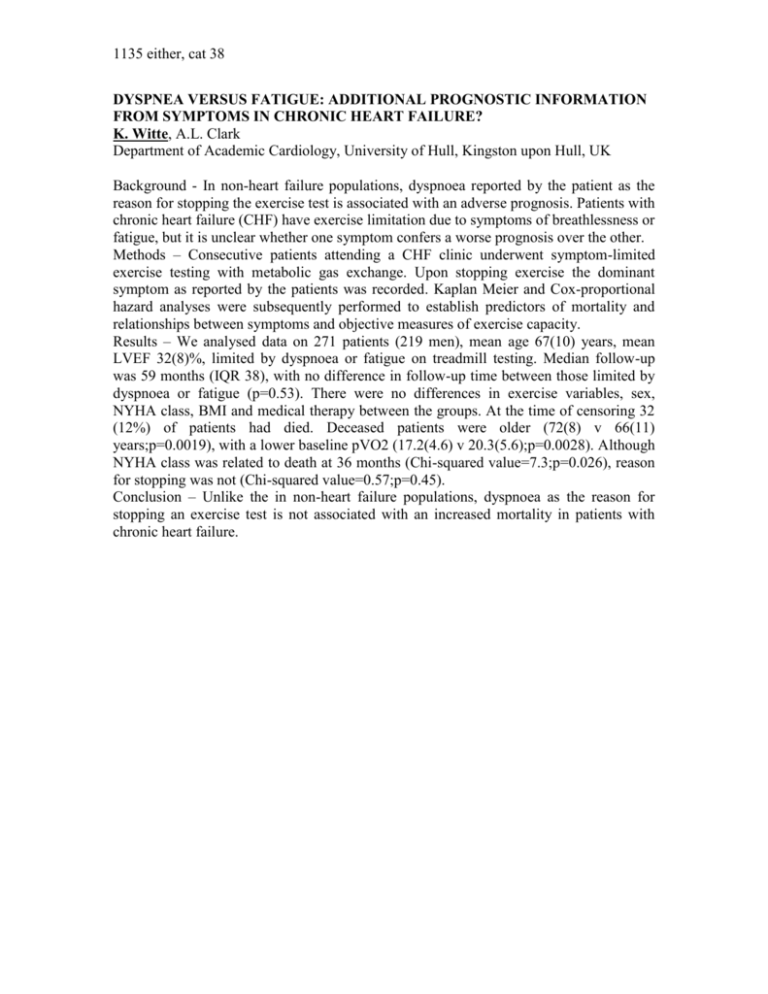
1135 either, cat 38 DYSPNEA VERSUS FATIGUE: ADDITIONAL PROGNOSTIC INFORMATION FROM SYMPTOMS IN CHRONIC HEART FAILURE? K. Witte, A.L. Clark Department of Academic Cardiology, University of Hull, Kingston upon Hull, UK Background - In non-heart failure populations, dyspnoea reported by the patient as the reason for stopping the exercise test is associated with an adverse prognosis. Patients with chronic heart failure (CHF) have exercise limitation due to symptoms of breathlessness or fatigue, but it is unclear whether one symptom confers a worse prognosis over the other. Methods – Consecutive patients attending a CHF clinic underwent symptom-limited exercise testing with metabolic gas exchange. Upon stopping exercise the dominant symptom as reported by the patients was recorded. Kaplan Meier and Cox-proportional hazard analyses were subsequently performed to establish predictors of mortality and relationships between symptoms and objective measures of exercise capacity. Results – We analysed data on 271 patients (219 men), mean age 67(10) years, mean LVEF 32(8)%, limited by dyspnoea or fatigue on treadmill testing. Median follow-up was 59 months (IQR 38), with no difference in follow-up time between those limited by dyspnoea or fatigue (p=0.53). There were no differences in exercise variables, sex, NYHA class, BMI and medical therapy between the groups. At the time of censoring 32 (12%) of patients had died. Deceased patients were older (72(8) v 66(11) years;p=0.0019), with a lower baseline pVO2 (17.2(4.6) v 20.3(5.6);p=0.0028). Although NYHA class was related to death at 36 months (Chi-squared value=7.3;p=0.026), reason for stopping was not (Chi-squared value=0.57;p=0.45). Conclusion – Unlike the in non-heart failure populations, dyspnoea as the reason for stopping an exercise test is not associated with an increased mortality in patients with chronic heart failure.

